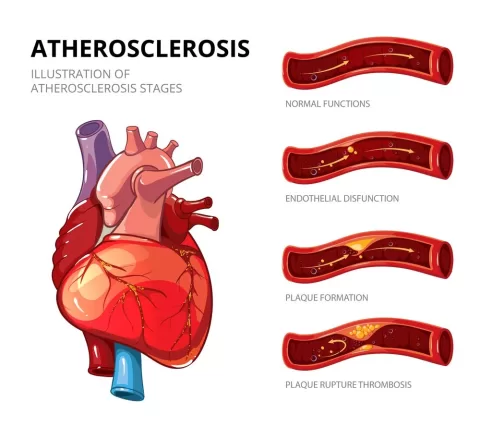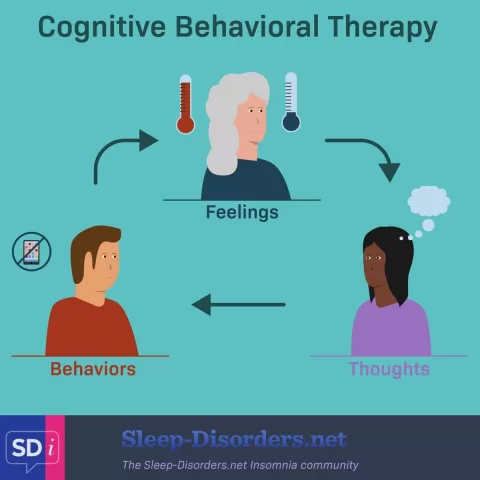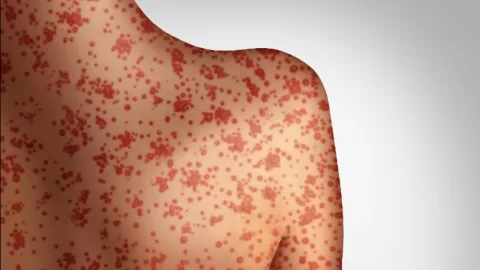Leukaemia awareness is crucial in enhancing comprehension and response to this formidable disease that affects thousands annually. The alarming story of Olivia Knowles, a vibrant athlete turned cancer patient, exemplifies the severe implications of a delayed diagnosis, often misattributed to long Covid symptoms, which can obscure underlying conditions like acute myeloid leukaemia (AML). As we delve deeper into the challenges surrounding cancer diagnosis, especially the aggressive nature of leukaemia, it’s imperative to highlight recent advancements in AML treatment and the significance of ongoing clinical trials for leukaemia. Increased public awareness not only promotes early detection but also fosters support for vital research aimed at improving outcomes for those affected. By spreading knowledge about leukaemia, we can empower communities and drive progress towards more effective treatment options.
Understanding leukaemia, often referred to as blood cancer, is essential for advocating better health practices and timely intervention strategies. Olivia’s harrowing experience emphasizes the importance of accurate identification of cancer symptoms that can mimic other conditions, such as long Covid. It brings to light the urgent need for improved cancer diagnosis methods and underscores groundbreaking advancements in treatments for acute myeloid leukaemia. With the rising interest in clinical trials for leukaemia, there’s newfound hope in innovative therapies that promise to enhance recovery rates. Raising awareness and encouraging research support are critical steps in combating this relentless illness and improving the lives of those battling it.
Understanding Acute Myeloid Leukaemia (AML)
Acute Myeloid Leukaemia (AML) is a serious and aggressive form of cancer that affects the blood and bone marrow. This type of leukaemia often presents sudden symptoms, which can be mistaken for less severe conditions like long Covid, as experienced by Olivia Knowles, a 33-year-old athletic woman. Early detection and intervention are critical, as AML can progress rapidly, leading to significant health complications. Symptoms often include fatigue, unexplained weight loss, and frequent infections, which may initially cause confusion when misdiagnosed.
The importance of understanding AML lies in the need for timely cancer diagnosis. As Olivia’s case illustrates, an initial misinterpretation of symptoms can lead to delayed treatment and worse outcomes. Despite the challenges of aggressive treatment regimens such as chemotherapy and stem cell transplants, advancements in AML treatment are crucial. Ongoing clinical trials and research are focusing on innovative therapies that may provide new hope for improved patient outcomes.
Leukaemia Awareness and Early Detection
Leukaemia awareness is essential not only for patients but also for healthcare professionals who may encounter initial symptoms that could indicate this serious condition. Olivia’s experience highlights the dangers of dismissing symptoms like headaches and fatigue as common ailments, particularly in physically active individuals. Awareness campaigns can educate both the public and medical communities on the signs and risks associated with leukaemia, potentially leading to earlier and more accurate diagnoses.
Raising leukaemia awareness involves sharing stories like Olivia’s to emphasize the significance of recognizing symptoms that may appear trivial at first glance. By improving education around leukaemia, we can encourage individuals to seek medical help sooner, rather than waiting for symptoms to worsen. This proactive approach is vital as advancements in treatment, including promising new clinical trials for leukaemia, depend on early intervention and comprehensive patient care.
Breakthroughs in AML Treatment Advancements
Recent years have seen significant advancements in the treatment of Acute Myeloid Leukaemia (AML), particularly with the introduction of novel therapies such as the Car-T treatment—a form of immunotherapy that modifies a patient’s own T-cells to target cancer cells. Olivia’s case exemplifies how these advancements are shaping the future of AML treatment. After undergoing traditional chemotherapy, she was able to receive this groundbreaking treatment, which offered her a glimmer of hope after several relapses.
Despite the aggressive nature of AML, research is continuously evolving, and new clinical trials are being launched to test innovative treatment options. These developments promise to enhance the efficacy of existing therapies that have not shown substantial progress for decades. As Olivia’s story demonstrates, hope resides in ongoing research efforts that aim to improve survival rates and quality of life for patients grappling with this daunting diagnosis.
The Role of Clinical Trials in Leukaemia Treatment
Clinical trials play a pivotal role in the advancement of leukaemia treatment, offering patients access to cutting-edge therapies that may not yet be available as standard care. Olivia’s participation in clinical trials during her battle with Acute Myeloid Leukaemia highlights the importance of these studies in helping researchers understand the efficacy and safety of new treatments. By enrolling in clinical trials, patients can contribute to the broader understanding of AML and potentially benefit from breakthrough therapies.
Moreover, clinical trials for leukaemia can lead to significant improvements in treatment protocols, providing insights into what works best for different patient populations. Each trial creates a pathway for medical advancements that can ultimately save lives. With Olivia raising over £25,000 for clinical research, she exemplifies how patient involvement and community support are crucial to propel these trials forward, driving innovation in leukaemia care.
Overcoming Misdiagnosis in Cancer Care
Misdiagnosis is a pressing issue in cancer care, particularly for conditions like Acute Myeloid Leukaemia. Olivia’s experience of being initially diagnosed with long Covid instead of leukaemia underscores the critical need for awareness and education among healthcare professionals. Misinterpretation of symptoms can lead to delays in treatment, exacerbating the patient’s condition and reducing the chances of successful outcomes. It is essential for healthcare providers to consider a broader spectrum of potential diagnoses.
Improving diagnostic protocols through better education and awareness campaigns can help mitigate risks of misdiagnosis. Key elements include training healthcare professionals to stay vigilant against atypical presentations of conditions like AML, fostering a culture where patient concerns are thoroughly investigated. By prioritizing accurate diagnoses, clinicians can ensure that patients receive timely and effective treatment, ultimately enhancing survival rates.
The Impact of Long Covid on Cancer Diagnosis
The overlap of symptoms between long Covid and cancers like Acute Myeloid Leukaemia (AML) presents unique challenges in diagnosis and patient care. Olivia Knowles’s story exemplifies this issue, where her leukaemia symptoms were initially attributed to long Covid fatigue. This misdiagnosis delays appropriate treatment and can create a barrier to timely interventions that are critical for aggressive cancers like AML.
As long Covid continues to be a focus of medical research and public discourse, it is crucial to differentiate between its symptoms and those indicative of serious conditions like leukaemia. Awareness campaigns highlighting the potential for serious underlying diseases masked by long Covid symptoms can empower patients to seek more comprehensive evaluations. Encouraging open communication with healthcare professionals enables patients to describe their full spectrum of symptoms, facilitating prompt cancer diagnosis when necessary.
Patient Advocacy in Cancer Research
Patient advocacy plays a crucial role in advancing cancer research and treatment. Through efforts like Olivia’s fundraising activity, which raised significant funds for clinical research at King’s College Hospital, patients are becoming integral voices in their treatment journeys. Advocacy efforts not only support research funding but also help raise awareness about the challenges faced by cancer patients, pushing for more attention to be given to aggressive cancers like Acute Myeloid Leukaemia.
Engagement in advocacy allows patients to influence research directions, emphasizing the need for new treatment modalities that address their specific needs. Collaboration between patients, researchers, and healthcare professionals is essential in driving forward innovations in leukaemia treatment and ensuring that research outcomes align with patients’ lived experiences and challenges.
Community Support for Leukaemia Patients
Community support is instrumental in the journey of cancer patients, as it fosters a sense of belonging and provides essential resources during challenging times. Olivia Knowles’s fundraising efforts not only help finance vital clinical research but also inspire others facing similar battles with leukaemia. Organizations and support groups offer emotional and practical assistance, helping patients navigate treatment choices and cope with the psychological impacts of their diagnosis.
Encouraging community involvement around leukaemia awareness creates networks where patients can share experiences and information. These platforms allow individuals to connect, share support, and advocate for better treatment options. The collective effort in addressing leukaemia can lead to enhanced fundraising for research and improvements in patient care, contributing to a stronger community resilience against cancer.
Living With Leukaemia: Daily Challenges and Hopes
Living with Acute Myeloid Leukaemia is fraught with daily challenges that impact not only the patients but also their families and support systems. Olivia Knowles’s reflections on her desire to return to normalcy and partake in daily activities reveal the emotional toll that leukaemia takes on one’s life. As patients endure the physical and psychological impacts of rigorous treatments, the longing for routine and the joys of daily life can become poignant reminders of what they’ve lost.
Despite these challenges, hope remains a powerful motivator for patients battling leukaemia. Each day brings new opportunities for progress, whether through advancements in treatment or moments of support from loved ones. For Olivia, the drive to raise funds for research represents a beacon of hope not only for herself but also for future generations facing leukaemia. Living with leukaemia requires resilience, and many patients find strength in the support of their communities and the promise of scientific breakthroughs.
Frequently Asked Questions
What is leukaemia awareness, and why is it important?
Leukaemia awareness encompasses efforts to educate the public about leukaemia types, like acute myeloid leukaemia (AML), its symptoms, and the importance of early diagnosis. Raising awareness can lead to earlier cancer diagnosis, better funding for research, and advancements in treatment options, contributing to improved patient outcomes.
How can I recognize the symptoms of acute myeloid leukaemia (AML)?
Symptoms of acute myeloid leukaemia (AML) can include fatigue, frequent infections, unexplained bruising, and headaches. Many of these symptoms overlap with conditions like long Covid, making awareness critical for accurate cancer diagnosis. If you experience persistent symptoms, consult a healthcare professional promptly.
What advancements have been made in AML treatment?
Recent advancements in AML treatment include novel therapies such as immunotherapy and Car-T cell therapy, which have shown promising results in clinical trials for leukaemia. However, experts highlight the need for ongoing research and funding to achieve solid advancements in treatment.
Are there ongoing clinical trials for leukaemia that patients can participate in?
Yes, there are numerous clinical trials for leukaemia, including studies focused on innovative treatments for acute myeloid leukaemia (AML). Patients interested in participating should consult with their healthcare providers to explore available options that might be beneficial for their specific case.
Why should we donate to leukaemia awareness and research initiatives?
Donating to leukaemia awareness and research initiatives helps fund critical studies that promote early detection, improve treatment methodologies, and ultimately save lives. Contributions foster advancements in clinical trials for leukaemia, targeting diseases like AML and enhancing patient care.
What impact can leukaemia awareness campaigns have on cancer diagnosis rates?
Leukaemia awareness campaigns can significantly increase public knowledge about symptoms and risk factors, leading to earlier cancer diagnosis. Increased awareness may also encourage individuals to seek medical advice sooner, potentially improving outcomes for patients diagnosed with acute myeloid leukaemia (AML).
| Key Point | Details | |
|---|---|---|
| Athlete’s Background | Olivia Knowles, a 33-year-old athletic woman with a history of endurance sports. | |
| Initial Misdiagnosis | Initially diagnosed with long Covid after presenting with headaches and fatigue. | |
| Diagnosis of Leukaemia | Diagnosed with acute myeloid leukaemia (AML) after severe toothache led to an emergency visit. | |
| Treatment Journey | Underwent chemotherapy, multiple relapses, and stem cell transplant. | |
| Recent Developments | Leukaemia returned shortly after being declared cancer-free; now given months to live. | |
| Fundraising Efforts | Olivia raised over £25,000 for clinical research at King’s College Hospital. | |
| Hope for Research | Olivia advocates for advancements in AML treatment, especially immunotherapy. | |
| Personal Reflection | Longing for normality, Olivia emphasizes the need for better treatment options. | |
Summary
Leukaemia awareness is critical as it highlights the challenges faced by those diagnosed with this aggressive form of cancer. Olivia Knowles’ story is a poignant reminder of the importance of recognizing symptoms early and advocating for appropriate medical evaluations. Her experience emphasizes the urgent need for advancements in treatment options for acute myeloid leukaemia (AML), which have stagnated for decades. Raising awareness can empower patients and their families to seek second opinions and pursue the latest treatments available, ultimately aiming for a future where no one else has to say they are living with ‘almost’ a cure.
The content provided on this blog (e.g., symptom descriptions, health tips, or general advice) is for informational purposes only and is not a substitute for professional medical advice, diagnosis, or treatment. Always seek the guidance of your physician or other qualified healthcare provider with any questions you may have regarding a medical condition. Never disregard professional medical advice or delay seeking it because of something you have read on this website. If you believe you may have a medical emergency, call your doctor or emergency services immediately. Reliance on any information provided by this blog is solely at your own risk.







